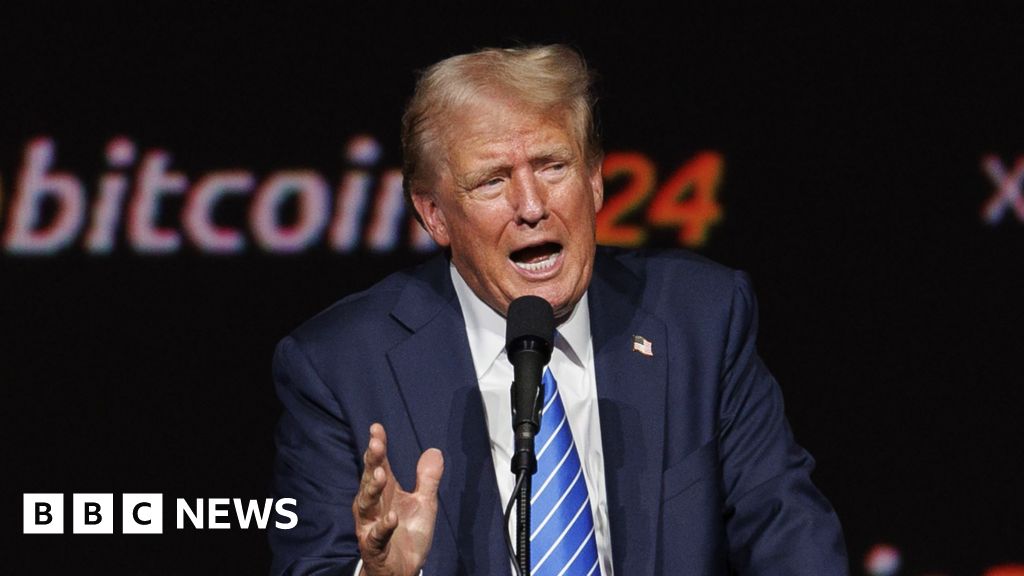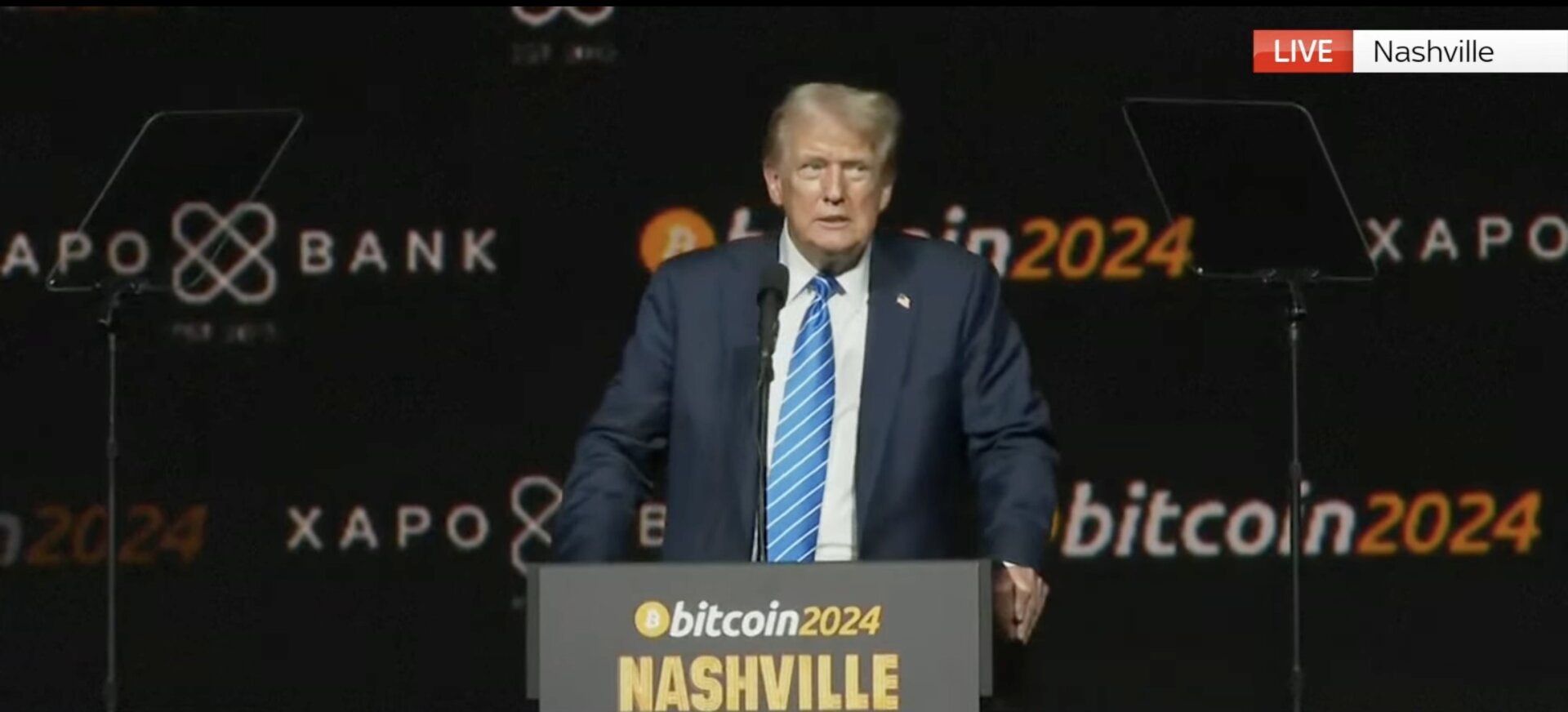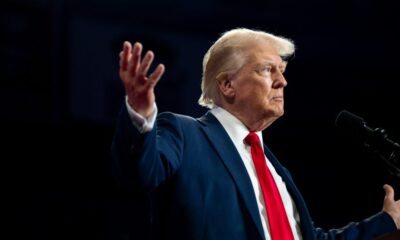Tech
Sustainable Solution or Climate Calamity? The Perils and Promises of Cryptocurrency Technology

A “useless way of using energy”?
The amount of energy required to power the Bitcoin network is staggering: Tim Berners-Lee, credited with inventing the World Wide Web, went so far as to describe “Bitcoin mining” as “one of the most fundamentally useless ways to use energy.”
Bitcoins do not exist as physical objects, but new coins are “mined,” or put into circulation, through a process that involves using powerful computers to solve complex mathematical problems. This process is so energy-intensive that it is estimated that the Bitcoin network consumes more energy than several countries, including Kazakhstan and the Netherlands. And because fossil fuel-fired power plants still make up a large part of the global energy mix, Bitcoin mining can be said to be partly responsible for producing greenhouse gases that cause climate change (although, so far, its impact on the climate is far less than that of major players such as agriculture, construction, energy, and transportation).
Another problem is the amount of energy required for each transaction, which is enormous compared to traditional credit cards: for example, each Mastercard transaction is estimated to use only 0.0006 kWh (kilowatt hours), while each Bitcoin transaction consumes 980 kWh, enough to power an average Canadian home for more than three weeks, according to some commentators.
Waste collectors rummage through municipal landfills in Zambia.
An important driver of sustainable development?
Despite these challenges, UN experts believe that cryptocurrencies and the technology they are based on (blockchain) can play an important role in sustainable development and, in fact, improve our environmental protection.
One of the most useful aspects of cryptocurrencies, as far as the UN is concerned, is transparency.
Because the technology is resistant to tampering and fraud, it can provide a reliable and transparent record of transactions. This is especially important in regions with weak institutions and high levels of corruption.
The World Food Programme (PAM), the largest United Nations agency that distributes humanitarian money, has found that blockchain can help ensure that money reaches those who need it most.
A Pilot program in Pakistan demonstrated that it was possible for WFP to get money directly to beneficiaries, safely and quickly, without having to go through a local bank. The project, Building Blocks, was also successfully tested in refugee camps in Jordan, ensuring that WFP could create a reliable online record of every single transaction.
If this can work for refugees, it can work for other disadvantaged and vulnerable groups. The authors of a report by the United Nations environment agency, PNUEsuggest that the technology could improve the living conditions of waste pickers, who survive thanks to the informal economy.
According to the report, a transparent monitoring system could accurately track where and how recovered waste is used, as well as identify who collected it, ensuring that the right people are rewarded for their efforts.

Unsplash/Chris LeBoutillier
Air pollution harms our health, but there is often a lack of local data available to identify solutions.
Stop environmental degradation
The potential of blockchain in protecting the environment has been tested in a number of other projects, by the UN and other organizations. These range from a tool to eliminate illegal fishing in the tuna industry, developed for the World Wide Fund for Nature (WWF), to a platform (CarbonX) that turns greenhouse gas emission reductions into a cryptocurrency that can be bought and sold, providing producers and consumers with a financial incentive to make more sustainable choices.
For the UNEP DTU Partnership (a collaboration between UNEP, the Technical University of Denmark and the Danish Ministry of Foreign Affairs), there are three main areas where blockchain can accelerate climate action: in transparency, climate finance, and clean energy markets.
Data on harmful greenhouse gas emissions in many countries, the Partnership says, is incomplete and unreliable. Blockchain solutions could provide a transparent and reliable way to show how nations are taking steps to reduce their climate impact.
Climate finance, or investments that help slow the rate of climate change, could be boosted if carbon markets were expanded, allowing companies and industries to shift to low-carbon technologies.
And blockchain could be an important part of accelerating the adoption of renewable energy sources like wind and solar. Because these sources are, by their very nature, intermittent and decentralized, new forms of energy markets are needed.
Tools that leverage blockchain technology can help create these markets and end our dependence on fossil fuels.
Finding energy-efficient solutions
Despite all these potential benefits, the huge energy consumption associated with this technology is one of the main obstacles to overcome; many operators in the industry are working to find solutions to this problem.
For example, the Ethereum Foundation, the organization behind the cryptocurrency Ethereum, is working on a new way to verify transactions. By switching to a different method (called Proof of Stake, or PoS), the Foundation claims that the energy cost of each transaction could be reduced by 99.95 percent.
At the same time, many industry players want to ensure that all energy consumed by industry is completely carbon-free.
In April 2021, three leading organizations (Energy Web Foundation, Rocky Mountain Institute, and Alliance for Innovative Regulations) formed the Crypto Climate Accord, supported by organizations spanning the climate, finance, NGO, and energy sectors.
The Accord aims to “decarbonize the industry in record time” and achieve net-zero emissions in the global cryptocurrency sector by 2030.

Gold has always played an important role in the international monetary system.
The Ups and Downs of Cryptocurrency
Cryptocurrencies are still in their infancy and there are still many technical and political challenges to overcome, as evidenced by the volatile nature of some of the more well-known releases.
A single tweet from tech billionaire Elon Musk can make Bitcoin go up or down; El Salvador announced plans to make Bitcoin legal tender in June, a month after Beijing announced a crackdown on Bitcoin mining; while another cryptocurrency, Dogecoin, has been widely traded, with huge and widely reported jumps and drops in its value (again, thanks in part to Mr Musk’s statements), despite the fact that it was created as a joke.
However, many financial experts believe that these teething problems will eventually be resolved, allowing cryptocurrencies and other blockchain-based financial instruments to enter the mainstream: several central banks are planning their own digital currencies, and so-called “stablecoins,” which can be pegged to precious metals like gold or national currencies, could become, as the name suggests, stable and reliable investment opportunities.
If the most vulnerable are to benefit from the promises of blockchain technology, and if it is to have a truly positive impact on the climate crisis, more technical research is needed, as well as a stronger international dialogue involving experts, scientists and policy makers.
“The UN should continue to experiment in the blockchain space,” says Minang Acharya, one of the authors of a recent UNEP forecast report on blockchain applications. “The more we experiment, the more we learn about the technology. This will likely improve our UN-level knowledge of blockchain, our understanding of the environmental and social implications of mining operations, and improve our ability to address any issues the technology may bring in the future.”
Tech
The Information Hires Peterson to Cover Tech, Finance, Cryptocurrency

My life is nice
Tech news site The Information has hired Business Insider actress to cover technology, finance and cryptocurrencies.
She was part of Business Insider’s investigative team. She was also previously a corporate technology reporter and a technology deals reporter.
Peterson has been with Business Insider since June 2017 and is based in the San Francisco office.
She previously worked for Folio as an associate editor. She holds a bachelor’s degree from the University of California-Davis and a master’s degree from New York University.
Chris Roush
Chris Roush is the former dean of the School of Communications at Quinnipiac University in Hamden, Connecticut. Previously, he was the Walter E. Hussman Sr. Distinguished Professor of Business Journalism at UNC-Chapel Hill. He is a former business reporter for Bloomberg News, Businessweek, The Atlanta Journal-Constitution, The Tampa Tribune, and the Sarasota Herald-Tribune. He is the author of the leading business journalism textbook, Show Me the Money: Writing Business and Economics Stories for Mass Communication, and of Thinking Things Over, a biography of former Wall Street Journal editor Vermont Royster.
Tech
Trump Courts Crypto Industry Votes, Campaign Donations

About the article
- Author, Brandon Livesay
- Role, BBC News
-
July 27, 2024
Donald Trump said at one of the biggest cryptocurrency events of the year that if he is re-elected president, he will fire the chairman of the U.S. Securities and Exchange Commission (SEC) on his first day.
On Saturday, Trump was the keynote speaker at Bitcoin 2024, a gathering of industry heavyweights in Nashville, Tennessee.
The Republican presidential candidate used the event to woo voters and encourage the tech community to donate to his campaign.
Cryptocurrencies have emerged as a political battleground for Republicans, with Trump saying that the Democratic Party and Vice President Kamala Harris were “against cryptocurrencies.”
The crowd was at its most animated when Trump declared, “On day one, I will fire Gary Gensler,” the SEC chairman appointed by now-President Joe Biden. The crowd applauded loudly and began chanting “Trump” at this statement.
SEC files charges against ‘Cryptocurrency King’ Sam Bankman-Frittosentenced to 25 years for stealing billions of dollars from customers of his cryptocurrency exchange FTX.
Speaking for about 45 minutes, Trump outlined some of his ideas for the industry if he wins the November election. He said he would make the United States the crypto capital of the world. His support for the sector is a 180-degree reversal from his comments in 2021, when he told Fox Business he saw Bitcoin as a “scam” that influence the value of the US dollar.
Trump told the crowd at the event that he would retain 100% of the Bitcoin currently owned or acquired by the U.S. government, adding that it would be a “national stockpile of Bitcoin.”
The former president also said he would “immediately appoint a presidential advisory council on Bitcoin and cryptocurrencies.”
He talked about the power needed to mine cryptocurrencies. “It takes a lot of electricity,” he said, adding that he would build power plants “to do that” and that it would “use fossil fuels.”
In recent months, some tech leaders have seen growing support for Trump’s presidential campaign. Tesla founder Elon Musk, who is the world’s richest person, has backed Trump. And cryptocurrency moguls the Winklevoss twins, who attended his speech on Saturday, have also come out in support.
Trump noted that his campaign accepts cryptocurrency donations, saying that in the two months since allowing cryptocurrency transactions, he has received $25 million (£20 million) in donations. However, he did not say how much of the payments came from cryptocurrency.
Trump used his speech to frame cryptocurrency regulation as a partisan issue, saying the Biden administration was “anti-crypto.”
Several Republican lawmakers also attended Trump’s speech, including Senators Tim Scott and Tommy Tuberville. Former Republican presidential candidate and Trump ally Vivek Ramaswamy was also in attendance.
The event was also attended by independent presidential candidate Robert F Kennedy Jr. and Democratic Party congressmen Wiley Nickel and Ro Khanna.
Earlier, during Bitcoin 2024, Democratic Congressman Nickel said that Kamala Harris was taking a “forward-thinking approach to digital assets and blockchain technology.”
Tech
WazirX Crypto Exchange Hack and Its Bounty Program: What Does It Mean for Crypto Investors in India?

On July 18, India Cryptocurrency exchange WazirX has been hit by a cyber attack which resulted in the loss of over $230 million worth of digital assets from one of its wallets. The exchange responded by suspending regular trading and reporting the incident to Indian authorities and other cryptocurrency exchanges. The company also launched two reward programs for ethical hackers who can help the exchange trace, freeze, and recover stolen funds.
WazirX said there was a cyberattack on a multi-signature wallet operated through a digital asset custodian service known as Liminal. Multi-signature wallets have a built-in security feature that requires multiple parties to sign transactions.
“The impact of the cyberattack is over $230 million on our clients’ digital assets,” WazirX said in a blog post, adding that INR funds were not affected. The company has firmly denied that WazirX itself was hacked and has brushed aside rumors that it was tricked by a phishing attack.
The exchange also noted that it was “certain” that its hardware keys had not been compromised, adding that an external forensic team would be tasked with investigating the matter further.
But Liminal, after completing its investigation, said: “It is clear that the genesis of this hack stems from three devices compromised by WazirX.”
Meanwhile, WazirX founder and CEO Nischal Shetty said that the attack would have been possible only if there were four points of failure in the digital signature process.
Who is behind the cyber attack?
WazirX has not yet disclosed the suspected parties or perpetrators responsible for the hack. However, news reports have emerged that North Korean hackers were responsible for the incident.
On-chain analytics and other information indicate “that this attack was perpetrated by hackers affiliated with North Korea,” blockchain analytics platform Elliptic said.
In response to The Hindu’s questions to WazirX about the North Korean hackers, cryptocurrency exchange WazirX directed us to its blog and said it was working with law enforcement to investigate whether a known malicious group was behind the attack.
“This incident affected the Ethereum multisig wallet, which consists of ETH and ERC20 tokens. Other blockchain funds are not affected,” WazirX said in its official blog, specifying that approximately 45% (according to preliminary work) of cryptocurrencies were affected by the attack.
The company largely placed the blame on the process of securing Ethereum multisig wallets and said that the vulnerability was not unique to WazirX.
How important is WazirX in the cryptocurrency industry?
WazirX calls itself India’s largest cryptocurrency exchange by volume. As of June 10, it reported total holdings of ₹4,203.88 Crores, or 503.64 million USDT. Tether [USDT] It is a stablecoin, that is, a cryptocurrency pegged to the value of the US dollar, but it is not an official currency of the United States.
When The Hindu tried to access WazirX Public and Real-Time Reserve Proof After the hack, we were greeted with a notice that the page was under maintenance.
WazirX has received both positive and negative reviews in India. The Enforcement Directorate froze the exchange’s assets in 2022, criticizing its operating procedures and lax Know-Your-Customer (KYC) and Anti-Money Laundering (AML) regulations.
“By encouraging obscurity and adopting lax AML norms, it has actively assisted around 16 accused fintech companies in laundering proceeds of crime using the cryptocurrency route. Accordingly, equivalent movable assets amounting to Rs 64.67 Crore in possession of WazirX have been frozen under the PMLA, 2002,” the ED said in a statement.
What will happen to WazirX assets?
It is unlikely that the stolen WazirX assets will be fully recovered anytime soon. This is due to the very nature of cryptocurrency, where assets can be easily mixed, transferred, converted, and sent to anonymous wallets. The chances of asset recovery are even slimmer if it is confirmed that North Korean hackers are behind the incident.
CEO Shetty said on X on July 22 that “small” portions of the stolen funds had been frozen, but declined to provide further details. He added that the majority of the funds had not been moved from the attacker’s wallet.
In recent years, North Korean hackers have stolen billions of dollars in cryptocurrency, aiming to circumvent various financial and economic sanctions.
WazirX is currently working to resume normal operations and has planned to launch an online survey to decide how to resume trading on the platform.
While the Indian exchange has defended its security practices and highlighted the challenges facing the cryptocurrency industry as a whole, savvy crypto traders will be looking for action plans and accountability, rather than emotional reassurance.
What does your rewards program consist of?
WazirX has announced two bounty programs: one to gain more information about stolen funds, and the other to recover them. Both programs are open to everyone except WazirX employees and their immediate family members.
Under the first program, WaxirX will reward up to $10,000 to anyone who can provide the exchange with information that can help freeze the funds. If the bounty hunter is unable to freeze the funds on their own, they should work with WazirX by providing enough evidence to facilitate the process.
But “if the participant fails to freeze and/or does not cooperate with WazirX to facilitate the freezing of funds, then the participant will not be entitled to any rewards,” the exchange said.
The second program, called White Hat Recovery, is aimed at recovering funds. Participants are offered 10% of the amount recovered as a white hat incentive.
“This reward will be paid only after and subject to the successful receipt of the stolen amount by WazirX. The above rewards will be payable in USDT or in the form of recovered funds at the sole discretion of WazirX,” the exchange noted.
The bounty programs are expected to last for the next three months.
This is a Premium article available exclusively to our subscribers. Read over 250 premium articles each month You have exhausted your limit of free articles. Support quality journalism. You have exhausted your limit of free articles. Support quality journalism. X You have read {{data.cm.views}} of {{data.cm.maxViews}} free articles. X This is your last free article.
Tech
Trump Vows to Make US ‘Crypto Capital of the Planet and Bitcoin Superpower’

Speaking to a crowd of supporters at the Bitcoin 2024 Conference in Nashville, Tennessee, former President and Republican candidate Donald Trump said that if elected, he would make the United States the “crypto capital of the planet and a Bitcoin superpower.”
Trump added that he would “appoint a Presidential Advisory Council on Bitcoin and Cryptocurrencies,” which would have 100 days to “design transparent regulatory guidance that will benefit the entire industry.”
Trump has publicly opposed cryptocurrencies until recently. His latest statements serve as a rallying cry for a tech industry that has long called for more flexible regulatory oversight.
Shortly after taking the stage, Trump spent several minutes naming some of the conference attendees, at one point describing Winklevoss Twins Cameron and Tyler as “male role models with big, beautiful brains.” The former president has continued to speak out against electric car mandates and called for more fossil-fuel burning power plants.
Trump also said he would order the United States to withhold all Bitcoin it currently owns “in the future.” The U.S. government reportedly holds billions of dollars in Bitcoin.
About three years ago, Trump called Bitcoin “a fraud“that is “competing against the dollar.” In February 2024, the former president said that establishing a central bank digital currency would represent a “dangerous threat to freedom.” Yet, in May, Trump declared that he was “good with [crypto]“, adding, “if you’re pro-cryptocurrency you’d better vote for Trump.” That same month, he said he would commute with the Silk Road founder Ross Ulbricht’s Sentencingand his campaign said it would accept cryptocurrency donations.
Recent comments from Trump and independent presidential candidate Robert F. Kennedy Jr. have helped make cryptocurrency regulation a major political issue in the 2024 U.S. presidential election. This comes as the SEC intensifies its scrutiny of the cryptocurrency industry. SEC Chairman Gary Gensler, appointed by President Joe Biden, called the activity “full of fraud, scams, bankruptcies and money laundering.” Trump drew applause at the conference after promising to “fire” Gensler. (U.S. presidents have the power to appoint the heads of many federal commissions, including the SEC.)
With Biden out of the raceVice President Kamala Harris’s campaign advisers have He is said to have contacted to cryptocurrency leaders in an effort to “reset” relations with the industry. Harris’s campaign has not yet said whether her stance on the industry differs from Biden’s.
-

 Altcoins12 months ago
Altcoins12 months agoTop Solana-Based Altcoins Stack Up As Market Turns Bullish!
-

 Altcoins12 months ago
Altcoins12 months agoAltcoins Are Severely Undervalued, Awaiting Ethereum Move | Flash News Detail
-

 News12 months ago
News12 months agoAI meme Raboo and crypto newbie ZRO
-

 Altcoins12 months ago
Altcoins12 months agoAltcoins Correct Amid ETH Decline, Grayscale Outflows | Flash News Detail
-

 DeFi12 months ago
DeFi12 months agoIf You Missed BONK and PEPE This Year, This Viral New Crypto Might Be Your Salvation
-

 Tech12 months ago
Tech12 months agoLogan Paul Offers Partial Refund for Failed CryptoZoo Game
-

 News12 months ago
News12 months agoDonald Trump vows to make the US a ‘Bitcoin superpower’ and create a national stockpile of tokens
-

 DeFi12 months ago
DeFi12 months agoIf You Missed BONK and PEPE This Year, This Viral New Crypto Might Be Your Salvation
-

 Tech1 year ago
Tech1 year agoThe Latest Tech News in Crypto and Blockchain
-

 Altcoins12 months ago
Altcoins12 months agoAltcoins set to make new crypto millionaires during summer rally
-

 DeFi1 year ago
DeFi1 year ago🪂EigenLayer Airdrop Claims Go Live
-

 Videos1 year ago
Videos1 year agoLIVE FOMC 🚨 Could be CATASTROPHIC for Altcoins!





